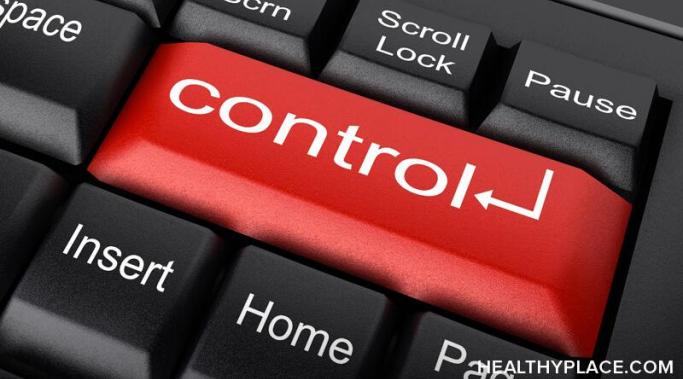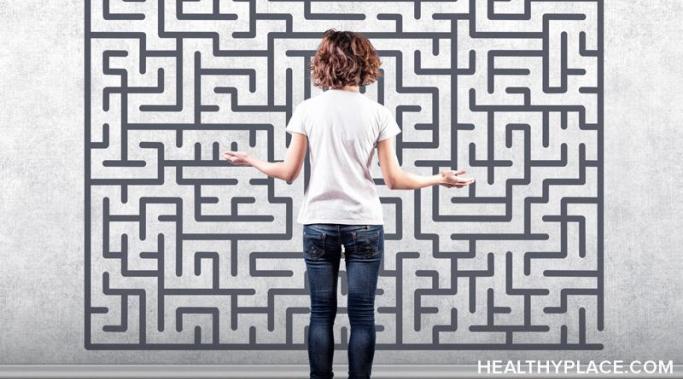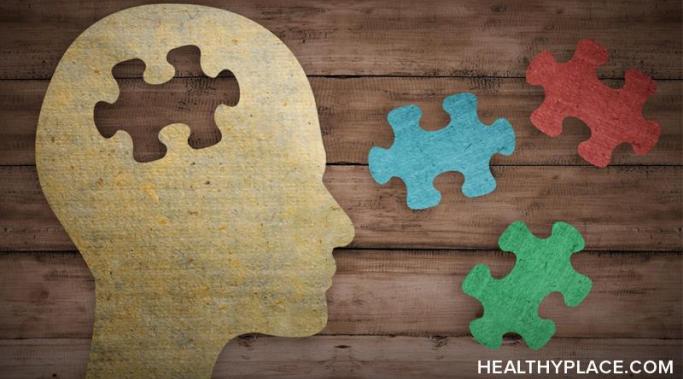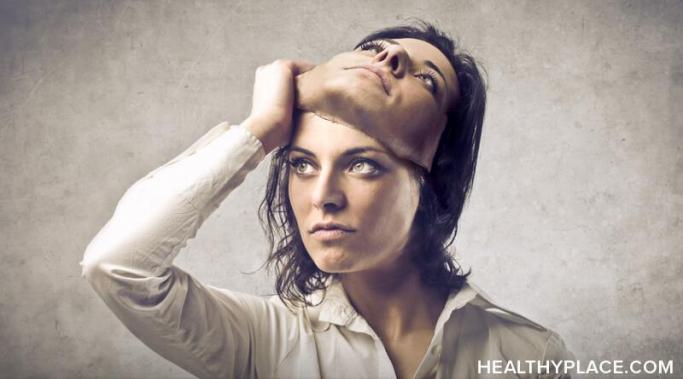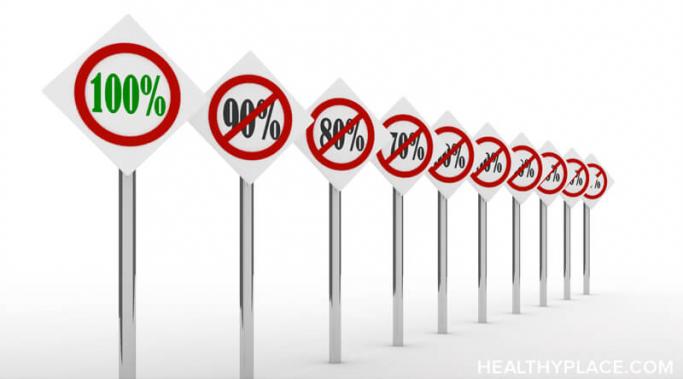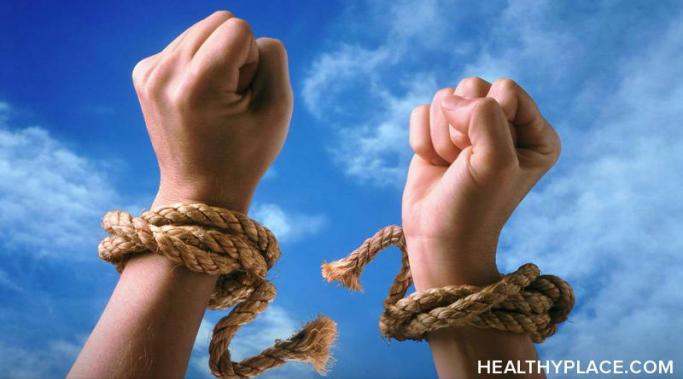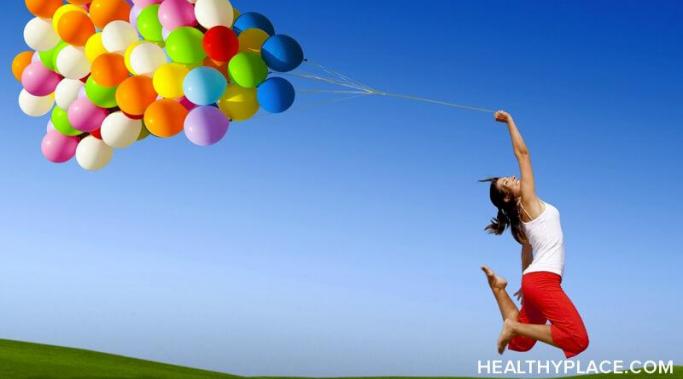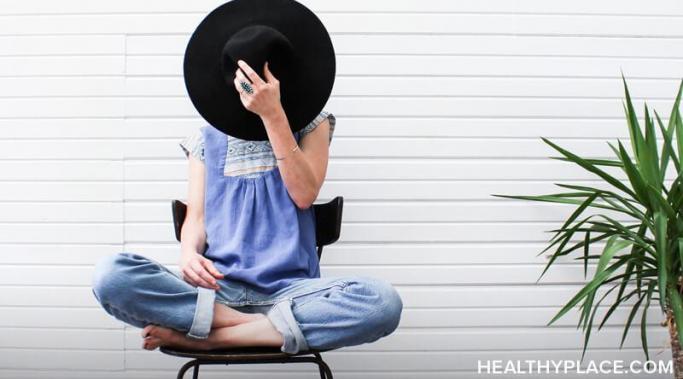Looking back at all my past problems from where I am today, it's often hard to remember just how low I felt. It's hard to remember the many years I spent stuck in a vicious cycle of anxiety, panic attacks, and obsessive-compulsive disorder (OCD), not knowing if I would ever be able to break free and live a happy and fulfilling life again. There were intermittent periods of depression when I was unable to see any reason for existence. Thankfully, those days are over.
Living a Blissful Life
One of the best pieces of advice I've ever received was to stop trusting my emotions, which means, don't trust my gut. I had gone to see an acupuncturist with a strained back and an abundance of curiosity. He palpated my ovaries, eyelids, and the like for a half minute before diagnosing my issue as one of emotional over-indulgence. He stuck a couple of dozen needles in me, left me alone for 20 minutes, and returned with his treatment plan. "You shouldn't trust your gut so much," he suggested and sent me on my way.
Do you have any negative beliefs (those which usually deliver an unwanted outcome)? Have you ever thought about why you believe some things and not others? Did you learn them at school, or are they the result of your experiences? Do your thoughts and ideas create positive or negative outcomes? It's worth taking the time to look at your beliefs, as they make up a fundamental part of your ability to experience happiness and have a powerful influence over your life, and replacing negative beliefs can be beneficial.
I hate the phrase, "live your truth." I really do. Besides being tragically cliched, relegated to Instagram captions and gift shop t-shirts as it is, "live your truth" is generally marketed as a philosophy that will always yield a good outcome: live your truth, and you'll be radiant, prosperous, and probably really great at yoga. Live your truth, and achieve perfect bliss. Rarely have I heard a person or a piece of content urge me to live my truth and insinuate anything but a wonderful result.
I remember visiting my therapist when I was learning to cope with obsessive-compulsive disorder (OCD), and one of the things he said was, "Mr. Brocklebank, you have set yourself a very high bar." Of course, I knew this already. I have been painstaking and particular about everything I do for as long as I can remember—what some might call a perfectionist. But is perfection something you should try to achieve, or can you be happier without it? As a perfectionist, can you ever meet the uncompromising standards you set for yourself? Should perfectionism ever be a goal?
Taking risks has a bad reputation. We advise people against decisions that seem "risky," warn children away from capers that might result in injury, and, as a general rule of thumb, seek certainty at all costs. On the surface, this ethos makes perfect sense. Why take risks when the odds are against you? After all, that's what risk is: a poor probability or an unlikely shot.
The idea of attracting bliss brings many different images to mind. We often associate the word with heightened mental states such as those brought about by meditation and a life of simplicity. At the other end of the spectrum, we might picture a life of complete abundance rooted in physical sensations, wealth, and material possessions.
Opposite action is a skill I learned as a patient in dialectical behavior therapy (DBT) some three years back. I had begun DBT—a form of therapy that attempts to teach skills that can help counteract a particular behavior—for emotional volatility, and one of the very first skills that I learned was opposite action.
An idea that I keep returning to with my journey toward a happier life is looking for joy in situations that aren't typically very joyful. I'm sure you've heard the phrase, "Hard work is its own reward," but what does that mean? How can something that you loathe doing be in any way rewarding? How can you look for joy there?
I believe that January offers the stillness necessary for revivification, and because of this, I've gotten into the habit the past couple of years of using the month as a true reset. I am especially thrilled about this opportunity this year. I ended 2022 not with a bang nor a fizzle but with a nagging cold, a shoulder injury, and a sub-par attitude. I'd like to share with you today my intentions around the new year to amend these physical and psychic wrongs.
